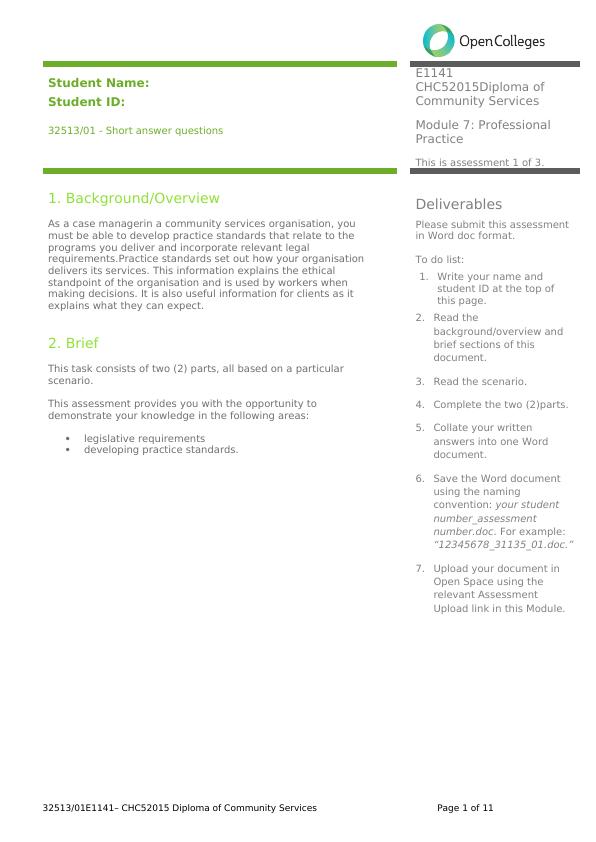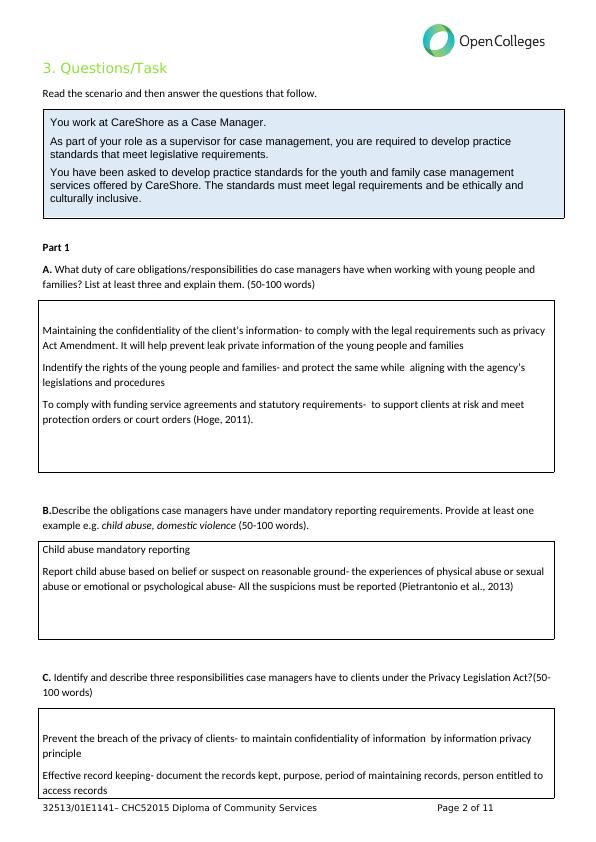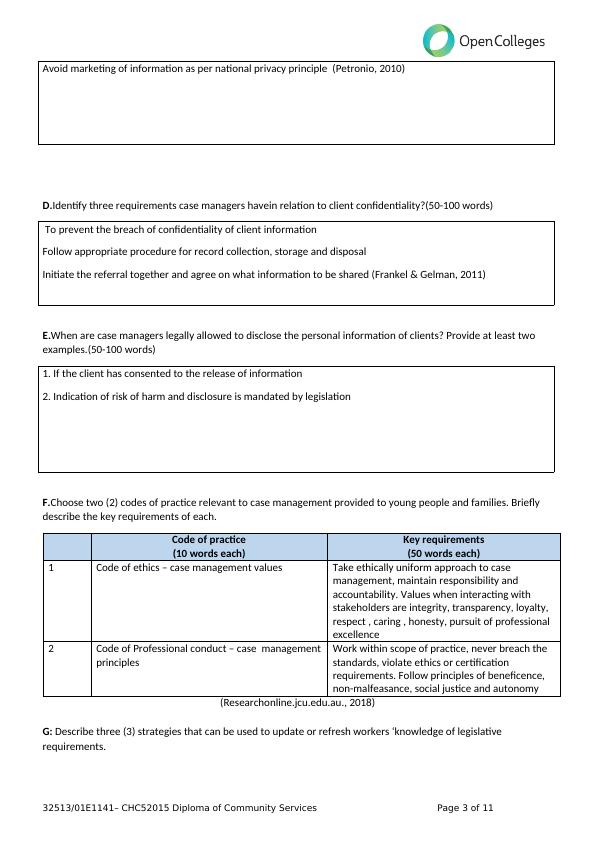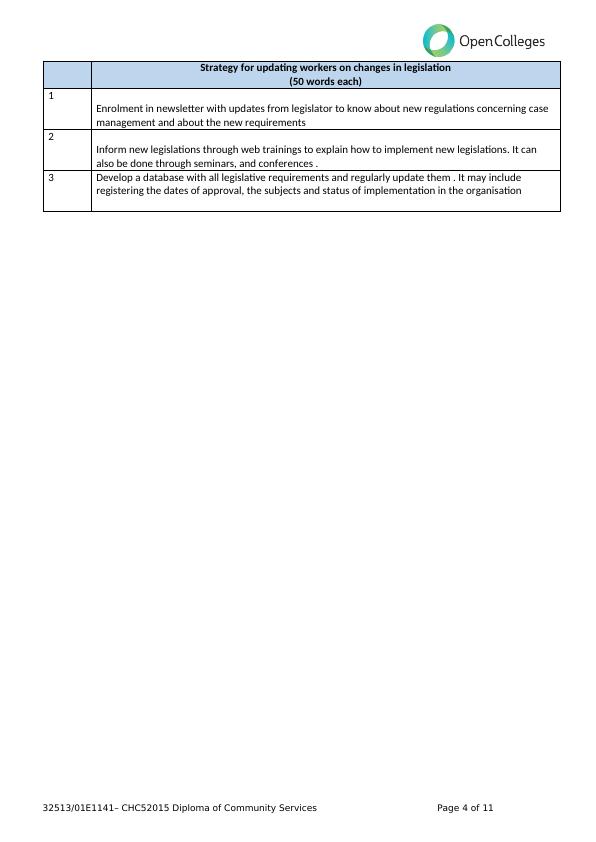Developing Practice Standards for Youth and Family Case Management Services
This assignment consists of short answer questions based on a particular scenario in the field of Community Services.
11 Pages3244 Words392 Views
Added on 2023-06-14
About This Document
This assessment requires the development of practice standards for youth and family case management services that meet legal requirements and are ethically and culturally inclusive. The questions cover topics such as duty of care obligations, mandatory reporting requirements, client confidentiality, cultural competence, and continuous improvement strategies. The assessment also requires the identification of resources and organizations that provide information about culturally specific needs of clients.
Developing Practice Standards for Youth and Family Case Management Services
This assignment consists of short answer questions based on a particular scenario in the field of Community Services.
Added on 2023-06-14
ShareRelated Documents
End of preview
Want to access all the pages? Upload your documents or become a member.
CHC52015 Diploma of Community Services
|9
|2151
|442
Assessment 3 of 3 - Professional Practice - CHC52015 Diploma of Community Services
|11
|3309
|290
Develop and Review Case Management: Knowledge Test - Short Answer Questions
|19
|5416
|163
CHC52015 Diploma of Community Services : Assignment
|12
|3008
|807
Monitoring and Reviewing Case Management Plans
|15
|3796
|149
Student Name:. E1141. Student ID:. Diploma of Community
|14
|3841
|163




